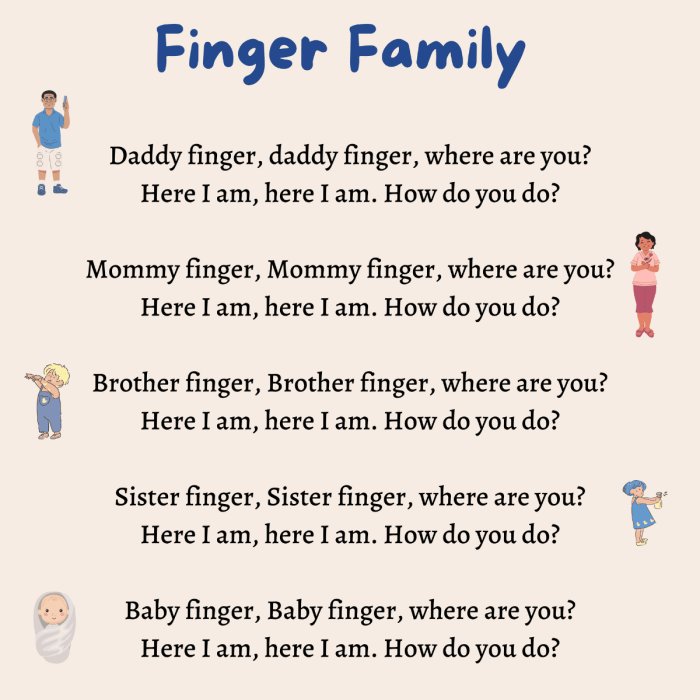
Family health clinic serves as a cornerstone in promoting comprehensive health within communities, fostering an environment where families can access essential medical services in a supportive setting. These clinics provide a variety of services ranging from preventative care to health education, ensuring that families not only receive treatment but also understand how to maintain their health effectively.
By focusing on both physical and mental well-being, family health clinics play a crucial role in addressing health disparities, encouraging healthy lifestyles, and guiding patients towards better long-term health outcomes.
Overview of Family Health Clinics
Family health clinics play a crucial role in the healthcare system, serving as accessible and comprehensive healthcare providers for individuals and families. These clinics focus on promoting overall health and well-being within the community. They serve as a first point of contact for many patients, offering various services that cater to the unique needs of families.Family health clinics typically offer a wide range of services, including routine check-ups, vaccinations, chronic disease management, preventative screenings, and mental health support.
By providing these services under one roof, they contribute to a holistic approach to healthcare. Furthermore, they actively promote preventative care, encouraging families to engage in healthy lifestyle choices to avoid potential health issues down the line.
Home Health Care
Home health care encompasses a variety of services designed to support patients in their own homes, making healthcare accessible and convenient. This includes skilled nursing care, physical therapy, occupational therapy, and assistance with daily activities such as bathing and meal preparation.Home health care supports family health clinics by extending their reach into the community. For example, a family health clinic may refer patients needing additional assistance to home health care services, ensuring continuity of care.
The benefits of home health care for patients and families are significant; it provides personalized care in a familiar environment, maintains independence, and often leads to better health outcomes.
Health Blog Integration
A well-curated health blog can serve as a vital resource for family health clinics, addressing various family health topics that resonate with their target audience. Content ideas may include tips for maintaining a healthy lifestyle, understanding common illnesses, and promoting preventive care practices.Health blogs play a crucial role in educating patients about the services offered at family health clinics. By providing informative articles and resources, clinics can attract more readers, foster community engagement, and encourage patients to seek medical advice and care when needed.
Healthcare Alliance
Healthcare alliances are significant for family health clinics as they foster collaboration and resource sharing among various healthcare providers. These partnerships can enhance the variety and quality of services offered, allowing clinics to address a broader spectrum of patient needs.Key partnerships might include collaborations with local hospitals, specialty clinics, and community organizations. Such alliances improve patient outcomes and community health by ensuring that patients receive comprehensive care, referrals are made smoothly, and patients have access to a wider network of support services.
Healthy Food Initiatives
Family health clinics often implement programs that promote healthy eating, recognizing the integral role nutrition plays in overall health. This can include offering nutrition classes, cooking demonstrations, and providing educational materials on healthy eating.A list of healthy food options that clinics can include in their resources may feature fresh fruits and vegetables, whole grains, lean proteins, and low-fat dairy products.
Clinics can also share simple, nutritious recipes or meal plans that families can easily prepare at home, promoting healthier eating habits for all.
Health Equity Issues
Health equity is essential in family health clinics to ensure all patients receive fair access to healthcare services, regardless of socioeconomic status or other barriers. Clinics must recognize the unique challenges that certain populations face, such as limited access to transportation or financial constraints that hinder their ability to seek care.To promote health equity among patients, clinics can implement strategies such as offering sliding scale payment options, providing transportation assistance, and engaging with community organizations to reach underserved populations.
By addressing these barriers, clinics can improve health outcomes and ensure that all families receive the care they need.
Health and Fitness Programs
Family health clinics can design community fitness programs that encourage families to be more active together. Activities may include walking groups, family yoga sessions, or fitness challenges that promote teamwork and engagement.Success stories from clinics that have adopted fitness initiatives often highlight improved health outcomes among participants, increased community cohesion, and heightened awareness of the importance of physical activity. Resources for families to improve their fitness together may include brochures, online challenges, or partnerships with local gyms to offer discounted memberships.
Health Connector Roles
Health connectors play a vital role in family health clinics, serving as links between healthcare providers and the community. They help patients navigate the healthcare system, ensuring they understand their options and facilitating access to necessary services.To improve community connections, family health clinics can implement strategies such as outreach programs, health fairs, and community workshops. Successful health connector initiatives often demonstrate how fostering relationships within the community can enhance overall health and well-being.
Managing Health Anxiety
Family health clinics can support patients dealing with health anxiety by providing resources and programs aimed at managing their concerns. This may include counseling services, support groups, or educational workshops that empower patients to understand their health better.Techniques for staff to encourage open discussions about health anxiety include creating a welcoming environment, actively listening to patient concerns, and providing clear information about services available to help.
Such initiatives can significantly reduce anxiety levels and promote better health management.
Health and Social Care Integration

Integrating social care with health services in clinics offers numerous benefits, including improved patient outcomes and a more comprehensive approach to care. Family health clinics that collaborate with social services can better address the social determinants of health influencing patients’ well-being.Examples of successful health and social care collaborations include partnerships with local housing organizations or mental health services. Training healthcare assistants in both health and social care practices enhances patient care by equipping them with the skills to address diverse patient needs effectively.
Health Benefits of Clinics
Family health clinics provide specific health benefits, including accessible healthcare services, continuity of care, and a focus on preventative health measures. By improving access to these services, clinics contribute to overall health improvement in communities.Testimonials from patients often reflect positive experiences, highlighting the personalized care they receive and the clinic’s role in supporting their health journey. These stories can inspire trust and encourage others to seek care from family health clinics.
Health Diagnostics Services
Family health clinics offer various health diagnostics, including blood tests, imaging services, and screenings for chronic conditions. These services are essential for early detection, enabling timely interventions that can lead to better health outcomes.To educate patients about available diagnostics, clinics can develop informational pamphlets or host workshops that explain the importance of regular screenings and health assessments. Emphasizing the significance of early detection helps patients understand the value of proactive healthcare.
Health Essentials for Families
Family health clinics should provide a list of health essentials that families need, including vaccinations, annual check-ups, and access to mental health resources. Promoting these essentials through outreach can ensure families are informed about what services are available.Tips for family health that clinics can advocate include regular physical activity, balanced nutrition, and mental wellness practices. Preventive care plays a crucial role in maintaining these health essentials, helping families stay healthy over time.
Health Tips and Resources
Family health clinics can distribute a resource guide for health tips that includes practical advice on nutrition, exercise, and overall well-being. Creative ways to promote healthy habits may include social media campaigns, community workshops, and partnerships with local businesses.Additionally, a compilation of useful health apps and tools for patients can enhance their engagement in personal health management. Providing these resources helps empower families to take charge of their health and well-being.
Dental Care Integration
Recognizing the importance of dental care within family health clinics is essential, as oral health is closely linked to overall health. Clinics can enhance dental services by offering regular screenings, preventive care, and referrals to dental specialists when necessary.Sharing dental health tips with families can promote better oral hygiene practices. Simple advice, such as brushing twice a day, flossing regularly, and scheduling routine check-ups, can significantly improve community dental health.
Overview of Healthcare Systems
Family health clinics play a crucial role within larger healthcare systems by providing primary care services that help alleviate the burden on hospitals and specialty clinics. However, clinics often face challenges in navigating complex healthcare systems, including administrative hurdles and funding limitations.Strategies for improving the efficiency of healthcare systems include streamlining administrative processes, increasing access to telehealth services, and advocating for policy changes that support community health initiatives.
By addressing these challenges, family health clinics can enhance their effectiveness and better serve their communities.
Health and Medical Insurance Information

Understanding health insurance options is vital for families seeking care at family health clinics. Clinics can assist patients in navigating their insurance benefits, ensuring they understand coverage options and potential costs associated with services.Providing tips on maximizing health insurance coverage can empower families to make informed decisions about their healthcare needs. This support is essential for helping patients access the services they need without financial stress.
Health and Medical Sciences Education
Ongoing education in health and medical sciences is crucial for clinic staff to maintain high standards of patient care. Clinics should invest in training programs and professional development opportunities relevant to family health.Improving education impacts patient care quality by ensuring that staff are equipped with the latest knowledge and practices in healthcare. This commitment to continuous learning ultimately benefits patients and enhances the overall effectiveness of family health clinics.
Health and Beauty Shop Collaborations
Potential partnerships with health and beauty shops can offer family health clinics innovative ways to promote wellness. Collaborations may include cross-marketing services, providing educational workshops, or offering joint promotions that highlight the importance of both health and beauty.Creating a promotional plan for these collaborations can enhance community engagement and broaden the reach of health initiatives. Integrating wellness and beauty care into family health strategies promotes a holistic approach to health, benefiting the community at large.
Final Conclusion
In summary, family health clinics are vital in bridging the gap between healthcare access and community wellness. They empower families through education, a wide array of services, and partnerships that enhance overall health. By prioritizing preventative care and fostering healthy habits, these clinics not only treat illnesses but also nurture a healthier future for all.
Detailed FAQs
What services do family health clinics provide?
Family health clinics typically offer a range of services including preventive care, vaccinations, health screenings, chronic disease management, and mental health support.
How can I find a family health clinic near me?
You can search online directories, contact your local health department, or ask for recommendations from your primary care physician to locate a family health clinic in your area.
Are family health clinics affordable?
Many family health clinics operate on a sliding fee scale based on income, making them an affordable option for families seeking medical care.
Do family health clinics accept health insurance?
Yes, most family health clinics accept various health insurance plans, and many also provide assistance with navigating insurance benefits.
What role do family health clinics play in preventative care?
Family health clinics focus on preventative care by providing services such as health screenings, immunizations, and education on healthy lifestyle choices to help patients avoid serious health issues.





